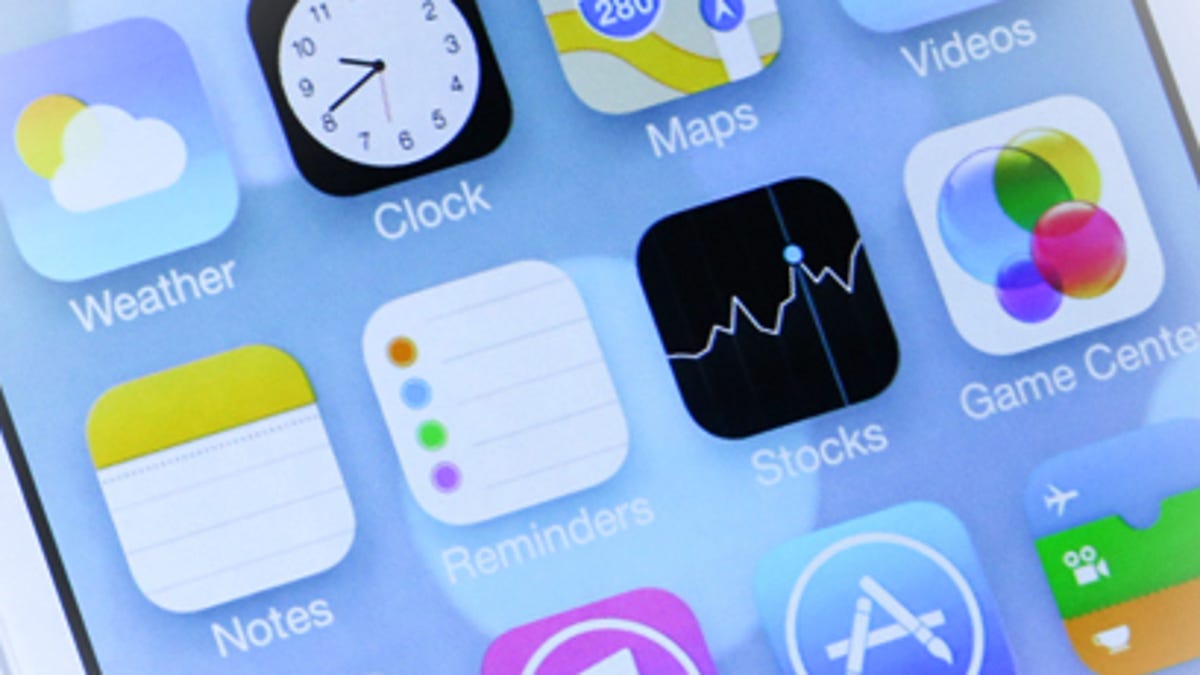iOS 7 specs versus Android 4.2, Windows Phone, BlackBerry 10
Apple's newly announced operating system takes on Android, Windows Phone, and BlackBerry. Here's how iOS 7 compares with what's already out there.

While some new behaviors go along with the updated apps, iOS 7's changes are more cosmetic and iterative than they are groundbreaking. That's completely understandable; not every update can spark a revolution.
However, apart from a few notable innovations, iOS 7 doesn't seem like it's enough to overturn criticism that its growth has stalled, that it's less innovative than archrival Android, and that it borrows heavily from other competitors (in truth, they all steal ideas from each other). At least not at this point in the game.
Below, you'll find a list of the iOS 7 features that Apple focused on today, and next to that, a brief description of how that trait exists on Android, Windows Phone, and BlackBerry rivals (or at least one manufacturer's take on said platform). Read on below for more detail about how iOS 7 stacks up.
| iOS 7 | Android 4.2 | Windows Phone 8 | BlackBerry 10 |
|---|---|---|---|
| Control Center | Yes, varies by phone-maker | No, settings menu | System access settings |
| Notification center | Detailed notifications | Live tile badges | BlackBerry Hub, badges |
| Multitasking preview | Recents list | Multitasking preview | Active Frames grid |
| Surfaced camera modes | Varies by Android skin | Third-party lenses | Video, Time Shift modes |
| Photos grouped by years, location | Albums, other filters | Albums, date | Albums, recent |
| Shared photo stream | Samsung Galaxy S4 | Share one by one | Share one by one |
| Peer-to-peer sharing (AirDrop) | Android Beam (NFC) | Tap + Share (NFC) | NFC sharing |
| Unified browser bar | Yes | Yes | Yes |
| Personalized radio/discovery | Google Play Music All Access | Nokia Music | Third-party app |
| Voice access to system settings | Samsung's S Voice | No systems access | No systems access |
| Automatic app updates | Optional, by app | 'Update all' option | Individual |
| Password-protected reset | No | No | No |
| In-dash integration (iOS for cars) | Driving mode/S Drive | Nokia Drive | Third-party apps |
What's new versus deja vu?
During the WWDC keynote and when we met with Apple later on, the company seemed most proud of the way its new Control Center will affect users' lives. I agree that it looks fantastic, and that its execution proves foresight and finesse.
The same goes for other new features like the larger preview panes in the multitasking mode, a unified browser search bar, and for peer-to-peer sharing via AirDrop (although NFC, which Apple doesn't currently support, works well, too).
That said, there's a lot in iOS 7 that we've seen before in other mobile platforms, in similar if not identical forms. There's absolutely nothing wrong with that so long as Apple executes well and brings value to the user. The difference is that Apple's most advertised iOS 7 software additions either play catch-up or are relatively minor, like a way to filter apps for kids or surface camera settings in the app's top layer.
Apple does push the industry forward with some capabilities that are all its own -- like iOS 7 for cars and using Siri to toggle system settings. (Samsung's S Voice does the latter, but not Android Voice Actions.) Even with driving modes for individual handsets, such deep car integration will be tough for the others to beat and even match without strong automotive partnerships.
iTunes Radio may not be a new concept, but I like that it's free for everyone, and integrated into a native app that people already use. Google Play Music All Access does about the same, but costs $10 per month, and Nokia Music is free, but only on Nokia's Windows phones.
Once again, Apple's advantage is that iOS 7 will be unified across most Apple smartphones and tablets, unlike Android, which varies greatly by phone-maker and has a notorious track record for timely updates across devices. Even Windows Phone has two flavors; that profits Nokia, the originator of most extra features, but also makes Windows Phone's benefits uneven across the entire portfolio.
Can iOS 7 stand out?
What we know of iOS 7 today makes a big splash when it comes to its refined interface design and a smaller sploosh when it comes to its new feature set.
Apple may not have bowled us over with headline enhancements, but iOS 7 will continue to formidably challenge Google, Microsoft, and BlackBerry with its eye-catching visual design and its total haul of features, new and old.
Like many things worth admiring, iOS 7 is greater than the sum of its parts.

